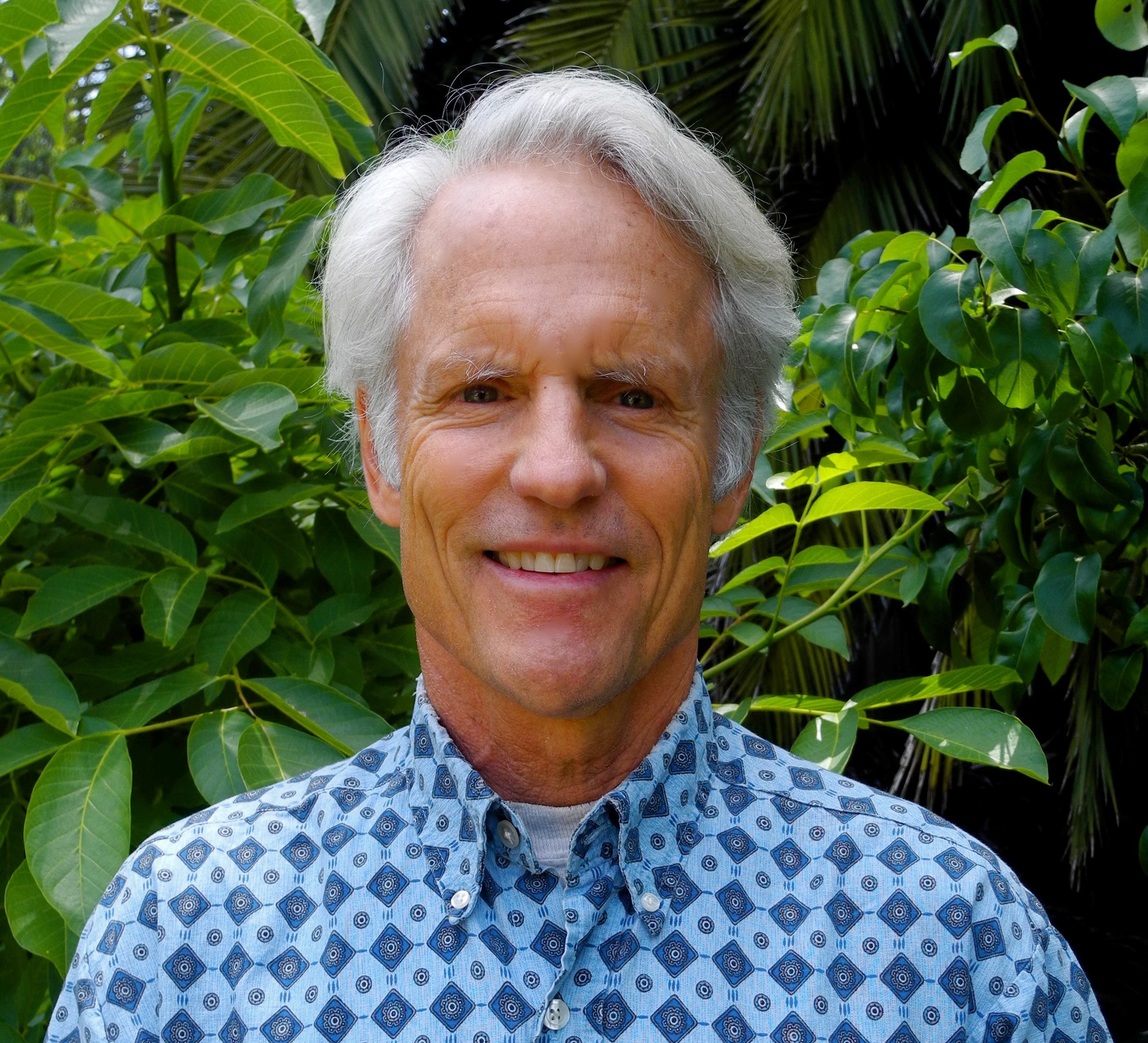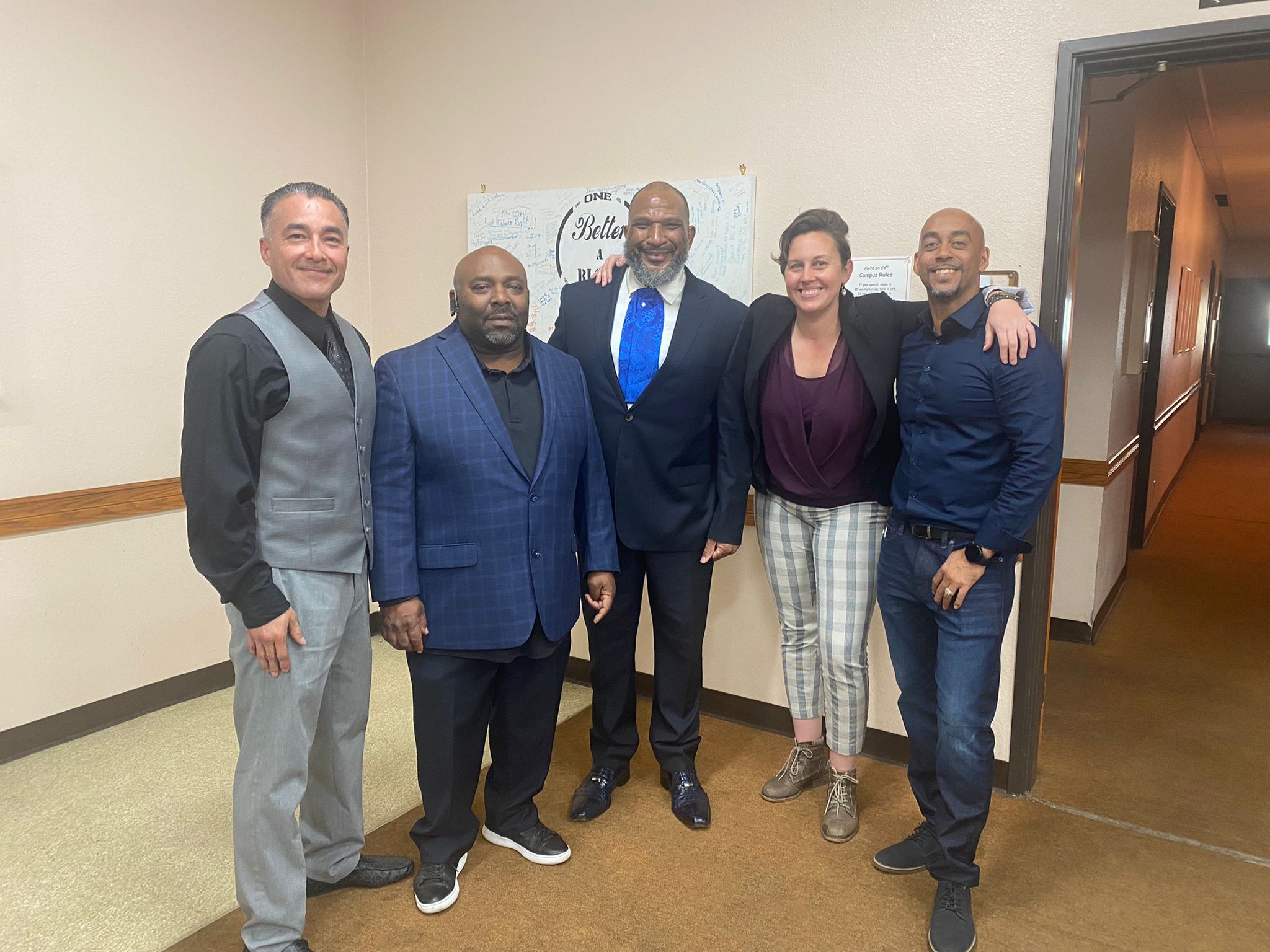 Gerald Schwartz is a Landmark Education Graduate and leads introductions to The Landmark Forum. He has also been a farmer in California’s Central Valley for most of his life and was recently appointed to be the Central Valley Regional Liaison on water issues. The history of water rights in California is fraught with lawsuits, animosity an occasional violence. As liaison Gerald is currently working to bring together farmers, municipal water managers, engineers, politicians and environmentalists to create a sustainable agreement and plan for the Mokelumne river watershed. With climate change and increased human pressure, water rights has moved beyond an environmental issue to an increasingly important social issue.
Gerald Schwartz is a Landmark Education Graduate and leads introductions to The Landmark Forum. He has also been a farmer in California’s Central Valley for most of his life and was recently appointed to be the Central Valley Regional Liaison on water issues. The history of water rights in California is fraught with lawsuits, animosity an occasional violence. As liaison Gerald is currently working to bring together farmers, municipal water managers, engineers, politicians and environmentalists to create a sustainable agreement and plan for the Mokelumne river watershed. With climate change and increased human pressure, water rights has moved beyond an environmental issue to an increasingly important social issue.
Gerald has developed a reputation for as someone who is able to bring people together.
Here is a July 23rd Article from the Lodi News Sentinal
By Ross Farrow
Gerald Schwartz grew up a country boy in southwest Lodi. He spent much of his life as a farmer.
But in recent years, he shifted gears. Schwartz now works for the East Bay Municipal Utility District, the very agency that takes a lion’s share of the Mokelumne River water right out of Lodi and to suburban customers in Alameda and Contra Costa counties.
EBMUD is often portrayed as the Bay Area bogeyman in the region’s water disputes, and Schwartz plays the difficult role of being a local boy who works for the outsider.
“A real thankless job, if you ask me,” Lodi Public Works Director Richard Prima said.
But Prima said Schwartz’s personality and background make him an ideal candidate to fill the job.
“He’s got local credibility,” Prima said. “He’s done farming, he can kick the dirt with people and listen to their issues. He’s not the city slicker from the Bay Area who comes over and tells you what’s good for you.”
Schwartz, 61, is the Central Valley liaison for EBMUD, which is a surprise considering what he heard during his high school days.
“In FFA, all I knew about EBMUD is that they stole our water — that’s what they told us — and that Woodbridge (Irrigation District) gave the rest of the water away,” Schwartz said. “None of which was true.”
Now Schwartz gives EBMUD full credit for giving the Lodi area significant flood protection by constructing Camanche Dam east of Clements in 1964, 12 years after a major flood hit Lodi. During that flood, the bridge on Lower Sacramento Road at Woodbridge Dam was ripped apart by water.
While colleagues realize he represents the East Bay water agency, they say Schwartz takes the interests of San Joaquin County to heart as well.
“He is an ideal catalyst for collaboration,” said EBMUD spokesman Charles Hardy. “I know how much he struggles with all of this.”
A local boy, when Kettleman was a country lane
Schwartz isn’t exactly your everyday water geek. He has a varied background and interests that transcend water politics. He’s still a farmer at heart, has a background in debate and school negotiations, enjoys riding his Harley Davidson motorcycle and collecting vintage John Deere tractors.
Born Feb. 6, 1946, in Wisconsin, Schwartz moved with his family to a dairy southwest of
Kettleman Lane and Lower Sacramento Road. It was way west of town in those days. His father, Elmer, irrigated grapes for farmers where Wal-Mart is today.
“Where Safeway is, I raised Holstein heifers for an FFA project,” Schwartz said.
A 1964 Lodi High graduate, Schwartz was president of the Lodi Future Farmers of America chapter during his senior year. He wanted to play sports, but his father wanted him at home to work at the family dairy. So Schwartz joined the school speech team. His debating skills, which he continued to develop in college, led him to success as a labor negotiator and later to his present position working with divergent water interests.
During his one semester at San Joaquin Delta College, Schwartz gave a speech against the Vietnam War. It was a 15- or 20-minute address, which he described as an “analysis” instead of a “protest.”
“I remember getting an ‘A’ on it,” Schwartz said. “It wasn’t like I was being a radical.”
After graduating from California State University, Fresno, Schwartz spent several years as a labor negotiator representing 11 school districts for the California School Employees Association, first in Los Angeles and later in Stockton.
But he missed farming — “You can’t take the country out of the boy” — so he began farming wheat, corn and clover seed at 11 ranches, nine of which he rented.
When he resumed his farming career, he joined nine boards and commissions in Sacramento County, not all of them at the same time. He spent 10 years on the Galt Irrigation District board, which serves rural areas in the Galt, Herald and Wilton areas. He was also chief negotiator for three agricultural districts and the Sacramento County Farm Bureau.
But what changed Schwartz’s career yet again was his involvement in the Sacramento County Water Forum, a coalition of water, business and environmental interests in Sacramento and foothill counties that worked together with the dual goals of providing a reliable water supply through 2030 and to preserve the lower American River. It took more than six years, but an agreement was forged in 2000.
Through his work with the Sacramento Water Forum, Schwartz caught EBMUD’s eye. He heard that EBMUD wanted a regional liaison and was asked if he knew somebody.
“I said I didn’t know anyone, but it looked pretty good to me,” said Schwartz, who was hired in late 2000.
Based on his experience with the Sacramento Water Forum, Schwartz put the wheels in motion to create another Water Forum, this one involving the Mokelumne River. Fourteen water agencies representing EBMUD and San Joaquin, Calaveras, Amador and Alpine counties was formed in 2003 in an attempt to work out issues regarding Mokelumne River water use.
“Peace on the river — that’s all we want,” Schwartz said.
His goal is for all water interests to gain something.
“I’m just a connection between (the Central Valley) and (Oakland),” Schwartz said.
Being a good listener
Water executives and board members recognize that Schwartz has the people skills to work with people who may be at odds on water issues with his employer, EBMUD.
“He’s a good friend,” said Ed Steffani, manager of the North San Joaquin Water Conservation District. “I don’t see any conflicts. We’re all searching for the truth, and he helps us get there.”
Steffani acknowledges that discussing complicated and sensitive water issues involving EBMUD is easier with Schwartz, who grew up in Lodi and understands local farming issues, than with executives at EBMUD’s headquarters in Oakland.
“I’ve always found him to mean what he says,” Steffani said. “He’s a man of his word. He’s honorable, trustworthy. I believe he has the water well-being of the community in his heart. I think that’s what drives him.”
Hardy, the EBMUD spokesman, says that Schwartz is hardly a “yes” man to his employer. Sometimes he’ll tell his bosses about some legitimate issues involving San Joaquin County, which aren’t always favorable to EBMUD.
“Having him as a colleague is valuable because of his high level of integrity,” Hardy said. “For Gerald, it’s not a mission statement you write down on paper; he lives it.”
One of the keys to getting along with people of conflicting interests is to be a good listener, Schwartz said.
“The key is listening and really hearing what’s being said, and that’s beyond the surface of the words being said,” Schwartz said. “If you miss that, you can miss the whole thing.”
For example, someone in San Joaquin County may criticize EBMUD for taking Mokelumne River water out of the Lodi area to the East Bay, but maybe the real issue could be the low price farmers are getting for their crops.
“It’s a challenge,” he said. “It’s fun. It’s great working with people.”
Schwartz said he learned valuable people sills from the Landmark Education, a San Francisco-based organization that sharpens listening skills. He attended a three-day workshop in which participants engaged in conversations about no particular topic — whatever came up, he said.
Schwartz’s answer to alleviating conflict?
“Dance with the music of the person you’re talking to. If someone’s really angry with you, dance,” he said.
Schwartz lives on a 10-acre ranchette with his wife, Deborah. They have two sons, Justin 26, of Elk Grove, and Konrad, 22, who is training to be a Navy Seal. Konrad Schultz won the state wrestling tile at 174 pounds for Sacramento City College in December 2005. They also have two daughters, Kristi, 23, and Jamie, 27, both from Elk Grove, and two grandchildren.
Schwartz doesn’t spend all his time on water politics. When he isn’t doing that he’s either restoring his 12 John Deere tractors built between 1927 and 1936, bicycling, water and snow skiing, gardening and golfing.
He’s able to dabble into so many hobbies, he says, because he learned to manage his time by not making his busy schedule control him.
“Is your calendar in your life, or is your life in the calendar?” he asked rhetorically. “If the calendar is in your life, it controls you. If your life is in your calendar, you have the freedom to choose.”


